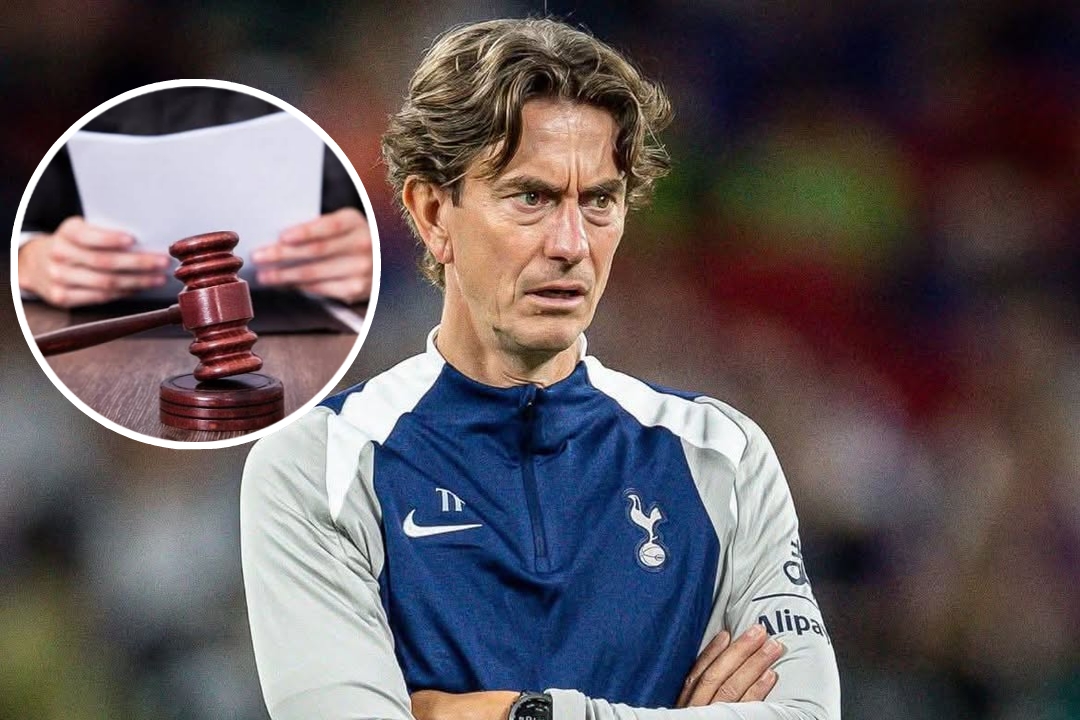NZF RELEASE STATEMENT ON NOTTINGHAM FOREST ACE AFTER BIZARRE YELLOW CARD FOR ‘SIGNING AUTOGRAPHS’
New Zealand Football Release Statement on Chris Wood’s Bizarre Yellow Card Incident Against Fiji
In an unexpected turn of events during New Zealand’s match against Fiji, striker Chris Wood was shown a yellow card by referee Norbert Hauata after what seemed to be a bizarre incident involving “signing autographs.” The situation quickly gained attention, as Wood appeared to be penalized for an action that seemed far removed from the usual reasons for a booking.
The incident occurred in the second half of the match when Wood was seen engaging with the crowd behind the goal after scoring. It appeared that he was waving to fans and even signed a piece of memorabilia that was thrown onto the field. However, this seemingly harmless interaction was flagged by the referee, who issued a yellow card to the striker for what was described as “signing autographs” on the pitch.
The decision immediately sparked confusion, both among fans and pundits alike, as it seemed a trivial reason for a yellow card. In response to the growing uproar, New Zealand Football (NZF) released a statement clarifying the situation and attempting to address the misunderstanding.
New Zealand Football’s Statement
In their official statement, New Zealand Football explained that there had been a miscommunication during the match and clarified why Chris Wood should not have been penalized. The governing body stated that the referee had mistakenly believed that Wood’s actions were in violation of the rules, but emphasized that there was no intention to disrespect the game or the officials.
The statement read: “New Zealand Football acknowledges the confusion surrounding Chris Wood’s yellow card in the match against Fiji. After reviewing the situation, it is clear that Chris’s actions were misinterpreted by the referee. While he did interact with the fans in a lighthearted and positive manner, there was no attempt to delay the game or violate any regulations. We believe that the yellow card was issued in error, and we will be seeking further clarification from the officials to prevent such misunderstandings in the future.”
The Significance of the Incident
The yellow card for “signing autographs” has left many questioning the extent to which referees should intervene in what appears to be a simple, fan-friendly gesture. Some have raised concerns that this could be an example of referees over-policing minor actions, potentially overshadowing the joy and spirit of the game.
Football is known for its moments of celebration and connection between players and fans, and Wood’s gesture was widely interpreted as an attempt to acknowledge the support of the Kiwi supporters in the stands. The fact that the incident occurred immediately after Wood’s goal only added to the disbelief, as players typically express gratitude to fans in a similar manner all over the world.
The Referee’s Perspective
While New Zealand Football has voiced its opinion, the referee’s decision to issue a yellow card remains under scrutiny. Referee Norbert Hauata may have interpreted the interaction as an attempt by Wood to delay the game or disrupt the flow of play, even though no such intent was apparent. However, the inconsistency in the application of the rules, especially for something as innocuous as a player waving to fans or engaging with them briefly, remains a topic of debate.
Conclusion
As the football world continues to digest this unusual yellow card, New Zealand Football’s statement offers clarity on their stance regarding the incident. It serves as a reminder of the fine line between enforcing the rules of the game and allowing players to express themselves. While it is clear that Chris Wood’s actions were not meant to disrupt the match, it remains to be seen whether any further steps will be taken by the governing bodies to ensure similar situations are handled more clearly in the future.
Ultimately, this episode has added an unexpected chapter to New Zealand’s football journey, and for Wood, it will be a story to tell his friends – and perhaps the fans – when he next takes to the pitch.








Post Comment